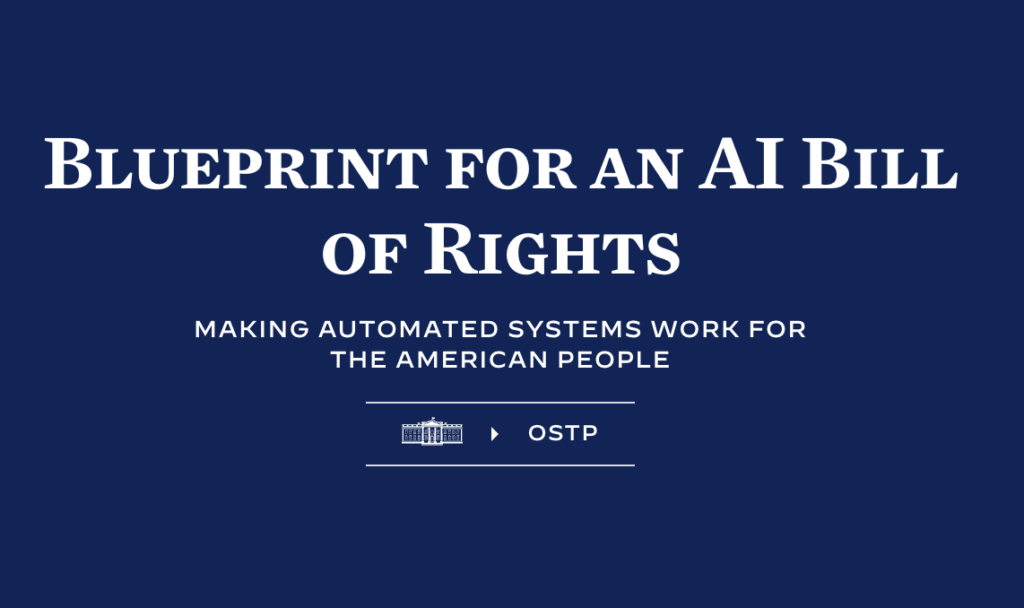
Last October, the Biden-Harris administration released a Blueprint for an AI Bill of Rights in anticipation of the need to protect the civil rights of Americans against big technology intrusions. Although there are already many protections in place, the Blueprint was developed to “inform policy-making to fill those gaps” where there aren’t any clear or designated policies. It provides five basic protections:
- Safe and Effective Systems: You should be protected from unsafe or ineffective systems.
- Algorithmic Discrimination Protections: You should not face discrimination by algorithms and systems should be used and designed in an equitable way.
- Data Privacy: You should be protected from abusive data practices via built-in protections and you should have agency over how data about you is used.
- Notice and Explanation: You should know that an automated system is being used and understand how and why it contributes to outcomes that impact you.
- Alternative Options: You should be able to opt out, where appropriate, and have access to a person who can quickly consider and remedy problems you encounter.
At that same time, the White House also announced actions to be taken within the government in support of the Blueprint that would immediately assist citizens across vocations in education, health care, technology and so forth. This is what the White House has in store in education for 2023:
Protecting students and supporting educators:
- To guide schools in the use of AI, the Department of Education will release recommendations on the use of AI for teaching and learning by early 2023. These recommendations will: give educators, parents and caregivers, students, and communities tools to leverage AI to advance universal design for learning; define specifications for the safety, fairness, and efficacy of AI models used within education; and introduce guidelines and guardrails that build on existing education data privacy regulations as well as introduce new policies to support schools in protecting students when using AI.
I look forward to reading what the Department of Education will release this year.

